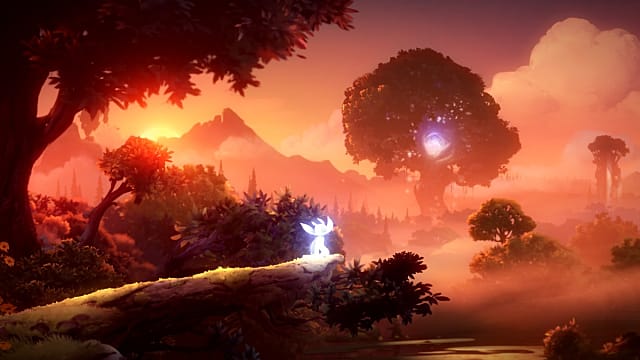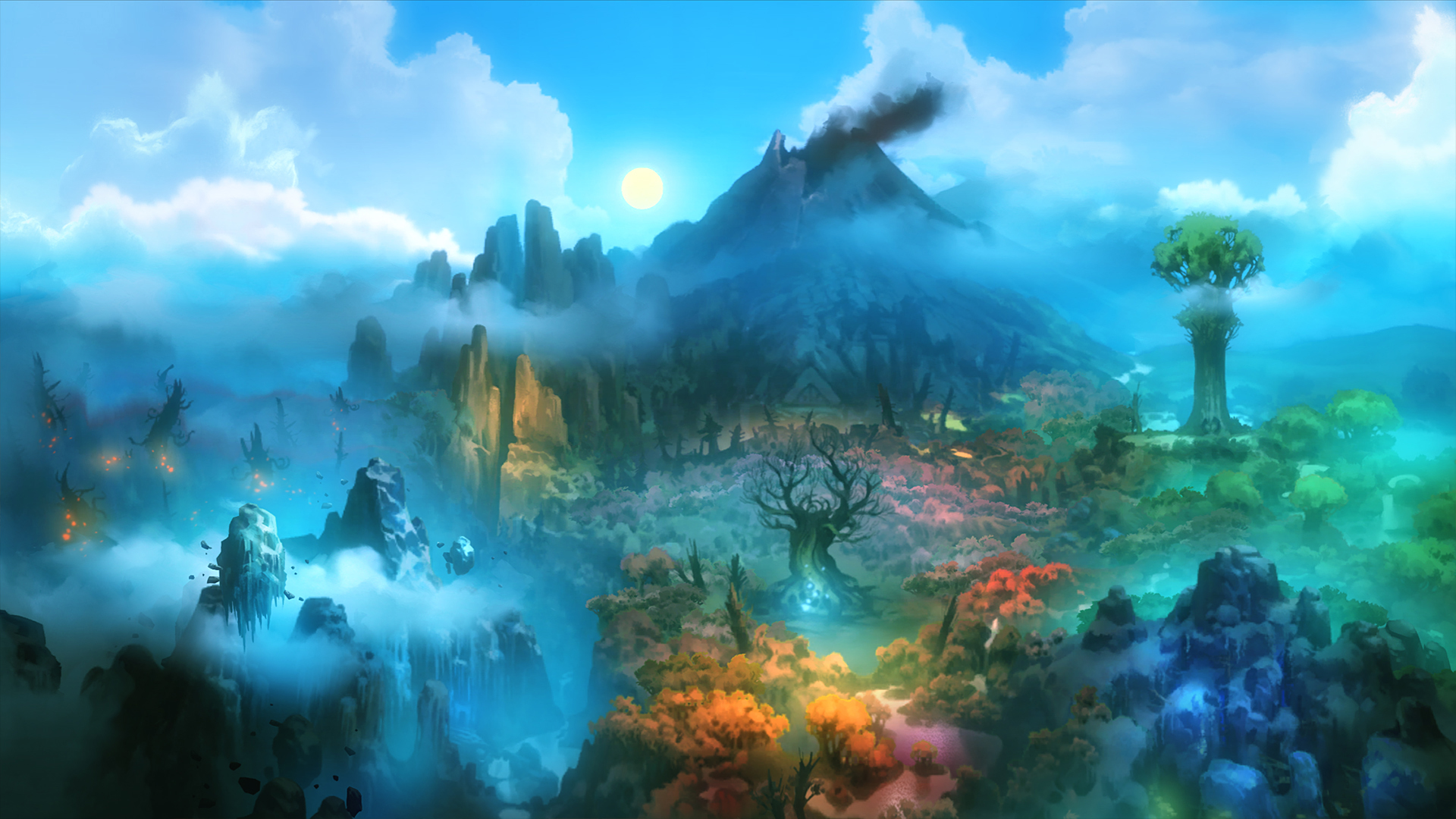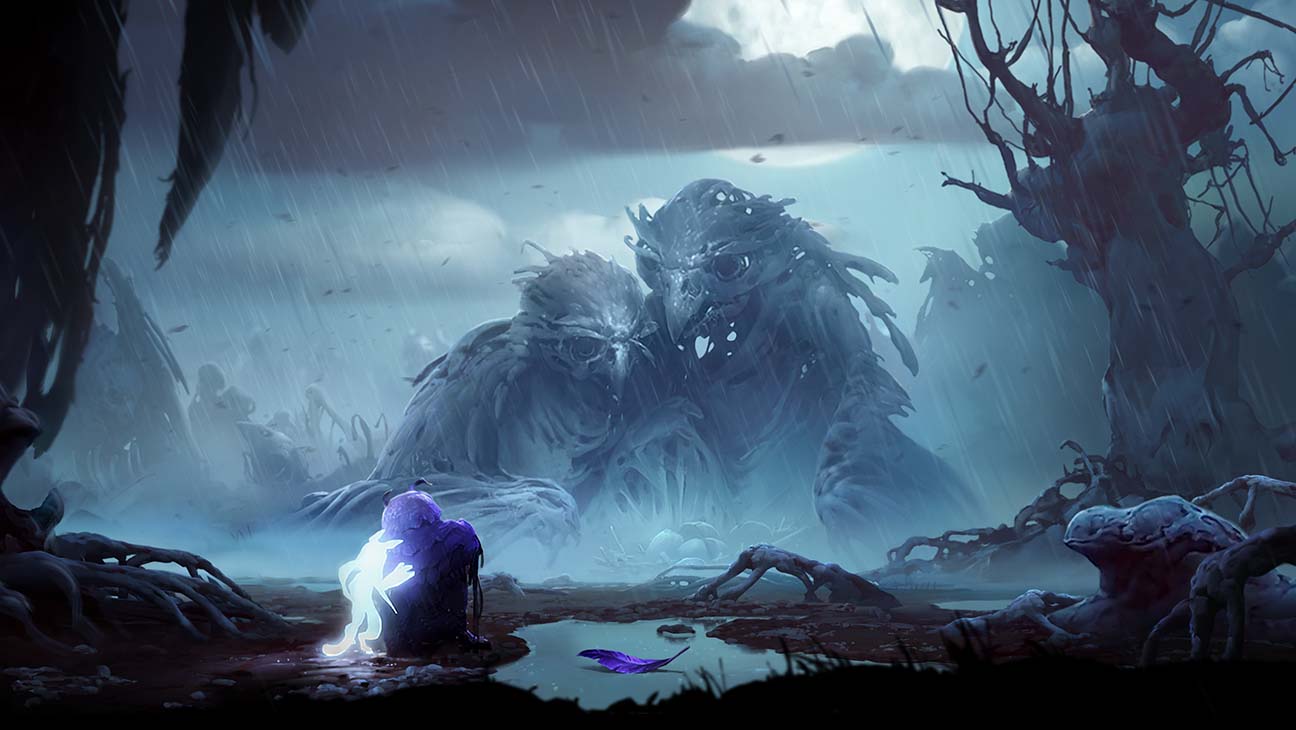Ori and the Will of the Wisps builds on everything that made its predecessor a beautiful, challenging Metroidvania.
The game has what you’ve come to expect from Moon Studios: amazing visuals and a moving, technical masterpiece of a soundtrack. It has the movement and tight controls you’ll need to conquer its new world, too, and there are welcome surprises, as well: a combat overhaul, mechanically challenging boss fights, and plenty of new abilities and environments to test your skills.
Will of the Wisps is, in short, better than the original in almost every way. Its story remains somewhat rote, and much of the game creates an illusion of choice rather than offering real choice to the player. Don’t worry, though; these minor scuffs do not dampen the game’s shine much at all.
Ori and the Will of the Wisps is a gem, and it’s one you won’t regret adding to your collection.
Ori and the Will of the Wisps Review: Discovering Destiny
This game is too beautiful for words, but I’ll try.
The first thing you’ll see when you boot up Ori and the Will of the Wisps is the peerless artistic style Moon Studios is now famous for. A dusky sky overlooks a vast forest, a great tree stands tall, shining lifegiving light onto all who can see it.
The game then wastes no time showing off how much it’s grown since Blind Forest. The color palette in Will of the Wisps is much broader than the one found in its predecessor, and as such, it opens up opportunities for new environments, new systems, and enough eye candy to put anyone in a permanent sugar coma.
Will of the Wisps takes place across every zone type you can imagine: water, snow, desert, swamp, forest, ashen wasteland — you name it, it probably has some representation here. The developers spared no expense in making sure each one of them is in stark contrast to all the others. No matter where you are or what you’re doing, you and everything around you will look great doing it.
That’s not to say there aren’t some genuinely gloomy and depressing locations scattered throughout the world. The ashen graveyard is a reminder of how much the world’s lost, and what might be at stake should you fail in your quest. In its desolation, there is perspective.
Gareth Coker, the composer for the Ori franchise, worked hard to ensure you’ll hear the desolation, too. Even the main menu screen sounds somber and distant. Then there are the levels where hope lives, and their sound is airy, bright, and filled with a lingering sense that even at the worst of times, there is something to cherish.
The game’s water level, in particular, strikes me as something Coker and his orchestra enjoyed creating immensely. The upbeat melodies jive perfectly with the blue waters and bright skies. The innumerable thorns are only a mild irritation in the face of a soundtrack this good.
It’s a nice problem to have, actually. There are parts of Will of the Wisps that are horrendously difficult, requiring precise timing and control to complete without dying. They can be frustrating to fail over and over again.
There were several points during my playthrough that would have ended my session in any other game.
Not in Ori. The music is good enough that I powered through the tough parts just to hear the strings swell or the horns take over. I’d even go so far as to say that the music in these games is a gameplay mechanic all its own.
In a Dark Souls game, all you have is the memory of your failure to keep you company as you make your way back to your bloodstain. In Ori, you have a lovingly crafted orchestration pushing you forward and celebrating with you when you succeed.
Suffice to say, Ori music good. Listen more.
Going to War
There are many great things about Ori and the Blind Forest. Combat, however, is not one of them. Engagements boil down to spamming a button over and over again when you’re somewhere close to an enemy, maybe using an ability or two to spice things up.
Enemies aren’t challenging once you know their attacks, and avoiding them is even easier than fighting them. There is little incentive to master any particular skill beyond maximizing your damage and your ability to maneuver-dodge telegraphed attacks.
In Will of the Wisps, that all changes.
Your first ability is a fast-striking melee attack that does decent damage in a four-hit combo that has knockback. It’s possible to fight through the entire game with just this one ability, not that you will.
Other abilities augment this core skill, provide additional opportunities for damage, affect the environment, or even change how you move around the level.
You’ll need every advantage, too, because enemies in Will of the Wisps are more mobile, deal more damage, and can take more punishment than you might expect.
Standard enemy fare has nothing on this game’s boss fights, however. All of them require you to use the key zone ability in new and inventive ways to survive, all while dealing damage and avoiding it yourself. Fights are often riddled with hazards, and the bosses each have significant health pools. Taking a cue from Souls-likes, you won’t be beating these bosses your first go around.
You’ll need to learn their phases first. Each boss has at least two, and as you progress through the game, you’ll be using more and more of your kit to work through them.
Satisfying Traversal
The same is true for how you move about the levels. Each zone has a key ability you’ll use more than any other, but by game’s end, you’ll be asked to use everything in your arsenal to navigate.
Thankfully, each movement upgrade is as satisfying to use as the last. And their effectiveness stacks across zones. Act 2 of Will of the Wisps is a more open affair than its first, and what you learn in one of the required zones will carry you farther in the ones you’ve not yet visited.
Don’t think all this tech is just for the various platforming challenges, either. The escape sections from Blind Forest make a return in Will of the Wisps, and they’re as treacherous as you might remember from the first game. That is, no checkpoints, no saves. It’s just you, a horrible monster, and about a minute of high-intensity platforming, give or take.
The whole affair is a stress-fest, but thanks to the music and tight controls, you can and will eventually flee, and you’ll feel incredible for having done so.
A Few Cracks
Sadly, Ori‘s blemishes stand out as much as its beauties. They don’t ruin the experience. Far from it. It’s just that everything else is so well done that you can’t help but to see where the game falters.
First, let’s talk narrative.
In Blind Forest, we spent the first seven or so minutes with some of the most heart-wrenching storytelling of the time. The conceit was simple: the loss of a parent in lean times forces a weak child from the nest. Yet it was this simplicity that allowed for the scene’s nearly flawless execution, followed so poorly by a standard Metroidvania experience.
Moon Studios heard the complaints and made their best attempt to act on the criticism. Instead of forcing emotions down our throats at the get-go, in Will of the Wisps, the story spans the whole game, told through in-engine cutscenes and gameplay sections.
An admirable effort, but sadly hampered by the somewhat mediocre storytelling. You can predict the “twists” from at least 10 miles away, and all the talk of light and hope quickly grows tiresome.
The characters don’t offer any surprises either, nor do the big narrative beats. Everything happens how you think it will, and choice isn’t the player’s prerogative.
My only other big complaint about Will of the Wisps is its sheer reliance on platforming challenges to fill content. The combat systems are so good, but beyond grinding for currency or collectibles, they’re only good for boss fights. You would almost be better served ignoring enemies entirely and focusing on the platforming if they weren’t always getting in the way.
I’m also sad that the first act is as linear as it is. We’ve seen a lot of great Metroidvania titles since Blind Forest, and many of them offer the player a lot of control over where they go and when. The first third of Will of the Wisps learned nothing, instead keeping the player to a reasonably clear critical path.
The second act isn’t nearly so linear, but the feeling of being led by the nose is never a good one.
Ori and the Will of the Wisps Review — The Bottom Line
Pros
- Gorgeous world, music, and animations
- Satisfying mechanics that reward skill and clever play
- Expansion and improvement of just about everything from the first game
Cons
- Endless platforming puzzles and challenges
- Rote story and lacking characters
If you want to play a beautiful, often difficult Metroidvania with some of the most satisfying combat and traversal mechanics the genre has to offer, Ori and the Will of the Wisps will give you plenty to be excited about.
It has its flaws, but none of them get in the way of this being one of the better games to come out in an already-packed 2020.
[Note: A copy of Ori and the Will of the Wisps was provided by Microsoft for the purpose of this review.]













Published: Mar 10, 2020 10:55 pm